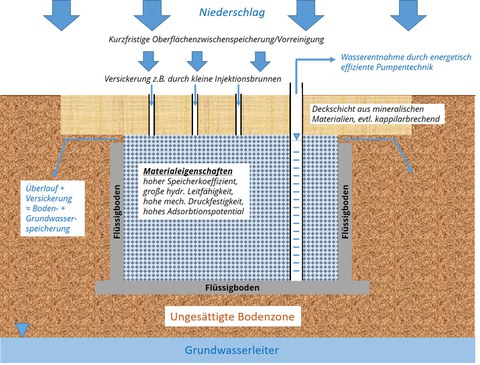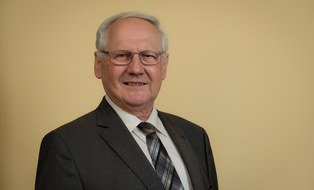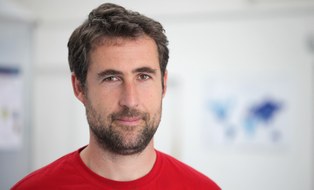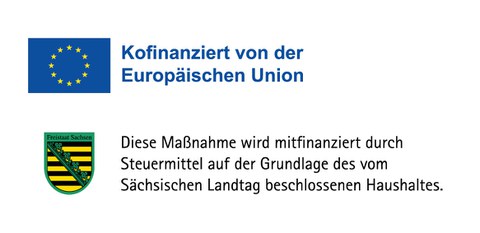GRUWAS: Holistic system for the construction and operation of underground water storage facilities – Securing water resource management under climate change conditions
Funded by
European Regional Development Fund (ERDF) – RuD project funding
Duration
01.07.2025 - 31.12.2027
Description
In Saxony, there is a growing need for technical solutions for the storage, retention, use and safe drainage of rainwater. This is due to regional climate change, the requirements of the EU Water Framework Directive and new or changing usage requirements in municipalities, industry and agriculture. In the coming decades, further changes in precipitation distribution are expected in Saxony, with lower precipitation during the growing season and an increase in extreme events. This goes hand in hand with a regional decrease in groundwater recharge, falling groundwater levels and a reduction in groundwater resources. On the other hand, there is a growing demand that must be met by groundwater, as not all regions of Saxony have sufficient surface water available. This includes an increasing need for irrigation in agriculture, water-intensive production processes in industry (including hydrogen electrolysis) and the provision of fire-fighting water. In this situation, the soil and the aquifer as regional water reservoirs are of particular importance, and their supply must be secured in the long term.
To develop special technical solutions for the challenges ahead, the project ‘Holistic system for the construction and operation of underground water reservoirs – securing water resource management under climate change conditions' (GRUWAS), which is funded by EU-EFRE-FuE funds, has been launched. A consortium consisting of the Technical University of Dresden, Institute of groundwater management, the Dresden University of Applied Sciences, Faculty of civil engineering, M&S Umweltprojekt GmbH in Plauen and Wilfried Keßler Erdbau & Abbruch GmbH in Plauen has come together to develop a method for reliable underground storage and subsequent infiltration of precipitation water, even under difficult hydrogeological conditions (thin porous aquifers, low-conductivity fissured aquifers and weathering zones, high flow velocities due to relief), especially for southern Saxony and the Saxon low mountain range regions. The main objective is to secure and support groundwater resources through the targeted infiltration of rainwater. Compared to surface water storage facilities, such underground storage facilities minimise evaporation losses and contamination from, for example, natural deposition and accidents, and reduce the cost of constructing and operating the technical facilities.
Technical solutions such as infiltration systems and rainwater retention basins are already available for sealed urban areas. However, these systems are often not feasible in rural regions for hydrogeological reasons and due to high costs. Therefore, the GRUWAS project aims to develop innovative, cost-effective solutions for the retention and utilisation of heavy rainfall runoff. The focus is on combining fast-acting short-term intermediate storage with long-term soil and groundwater storage. Excess water can be drained from the fast-acting storage facility into the aquifer. Water can also be extracted from the fast-acting storage facility using installed wells. Energy-efficient pump technology that also works in emergency power mode is to be used to utilise the water, e.g. for fighting forest fires or for industrial and commercial use and emergency water supply in fruit and horticultural businesses.

Schematic sketch of a concept for underground water storage in a thick unsaturated zone with an following porous aquifer
The development of solution concepts should be based on a holistic approach consisting of numerical modelling, pilot tests on a field scale and the use of alternative, natural, sustainable materials.
Contact person
 © TU Dresden
© TU Dresden
Prof. a.D. Dr.-Ing. habil Peter-Wolfgang Gräber
Scientific staff
Send encrypted email via the SecureMail portal (for TUD external users only).
Visiting address:
Neubau Chemie, 2.BA, Raum 271 Bergstr. 66
01069 Dresden
Office hours:
by appointment
 © C. Stefan
© C. Stefan
Dr.-Ing. Thomas Fichtner
Scientific staff
Send encrypted email via the SecureMail portal (for TUD external users only).
Visiting address:
Neubau Chemie 2.BA, Room E57 Bergstraße 66
01069 Dresden
Visiting address:
Institut für Abfall- und Kreislaufwirtschaft, Room 202 Pratzschwitzer Str. 15
01796 Pirna
Supervision of test stands + test field
Office hours:
nach Vereinbarung

